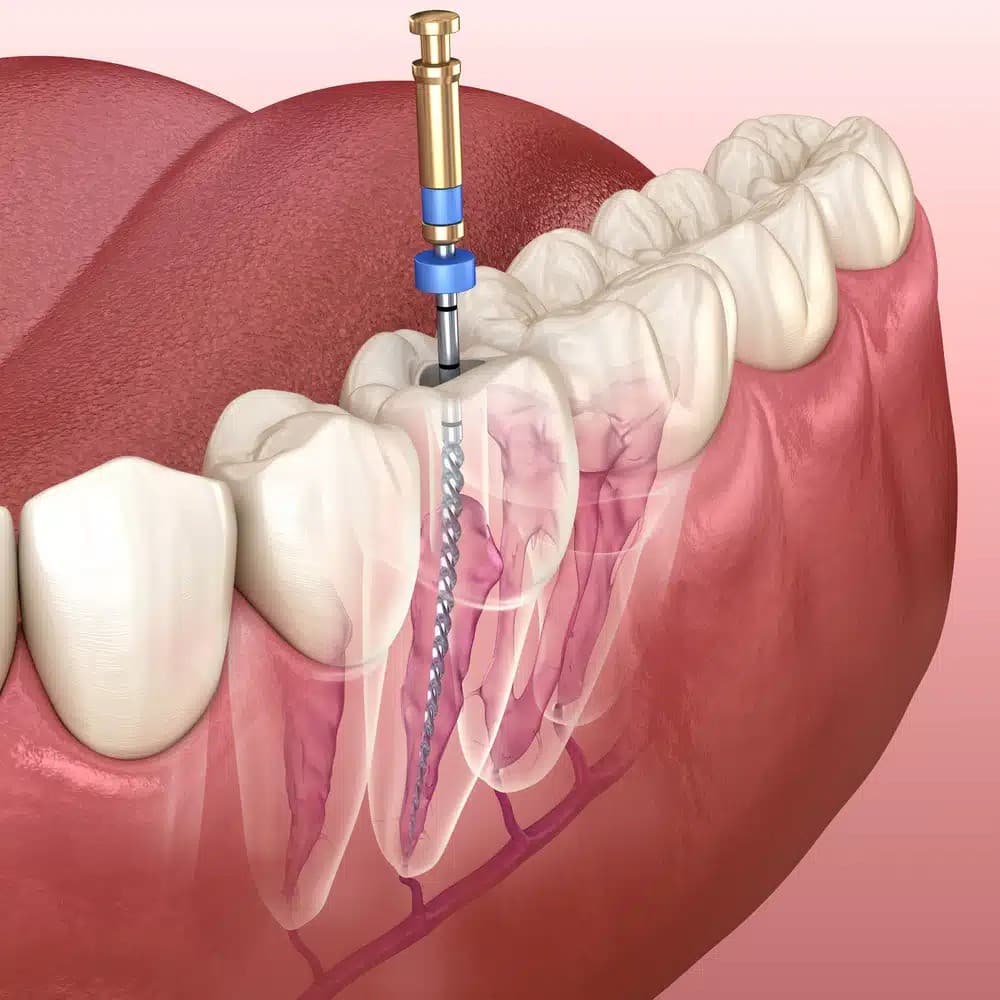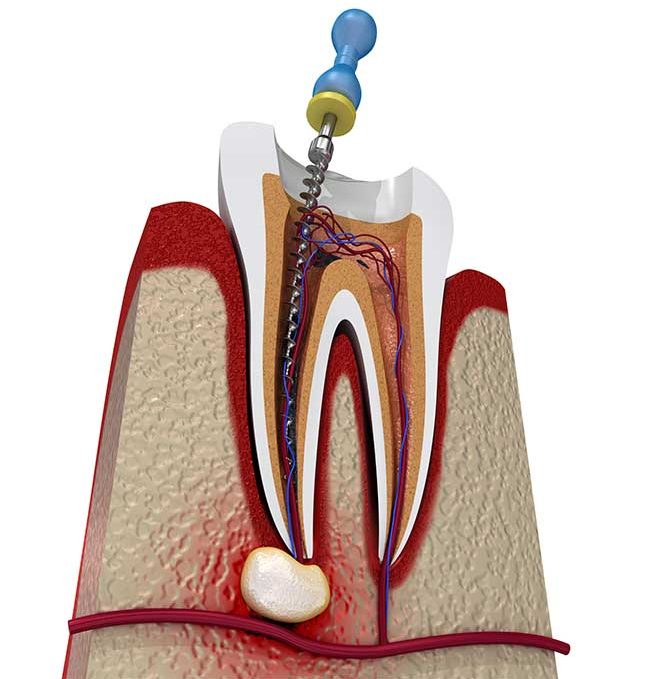What is a root canal?
A root canal is a dental procedure used to treat infection or inflammation inside a tooth’s pulp (the soft tissue containing nerves and blood vessels). The goal of the treatment is to remove the infected or damaged pulp, clean and disinfect the inner space of the tooth, and then seal it to prevent further infection. This procedure helps preserve the tooth and eliminate the need for extraction.


When is root canal treatment required?
- Deep Decay: Untreated cavities that reach the pulp can lead to infection.
- Cracked or Chipped Teeth: Small cracks can expose the pulp to bacteria.
- Repeated Dental Procedures: Multiple fillings or procedures on the same tooth can damage the pulp.
- Injury to the Tooth: Trauma can damage the pulp, even without visible cracks.
Signs that you may need a root canal include:
- Persistent tooth pain or sensitivity to hot and cold.
- Swelling and tenderness in the surrounding gums.
- Darkening or discoloration of the tooth.
- A pimple-like bump on the gums, indicating an abscess.
What does the procedure look like?
- Examination and X-ray: Dentist examines the tooth and takes X-rays to assess the damage and locate any infection.
- Anesthesia: Local anesthesia is administered to ensure the procedure is painless.
- Access to the Pulp: A small opening is drilled to access the pulp chamber and root canals.
- Removal of Infected Pulp: Specialized instruments are used to remove the infected or damaged pulp.
- Cleaning and Disinfection: The canals are cleaned, disinfected, and shaped to prepare for filling.
- Filling the Canals: Canals are filled with a biocompatible material called gutta-percha to seal them and prevent reinfection.
- Sealing and Restoration: Tooth is sealed with a filling, and a crown may be placed for additional strength and functionality.
Are root canal treatments painful?
Contrary to popular belief, root canal treatments are not painful. With modern techniques and local anesthesia, most patients experience little to no discomfort during the procedure. After the treatment, mild soreness or sensitivity may occur but can usually be managed with over-the-counter pain relievers. The procedure is designed to relieve pain caused by infection or inflammation in the tooth.
How long is root canal treatment effective for?
Root canal treatment can be effective for a lifetime if the tooth is properly restored and well cared for. However, the long-term success of the treatment depends on several factors, including:
- The placement of a crown or other restoration to protect the tooth.
- Good oral hygiene practices to prevent reinfection or decay.
- Regular dental check-ups to monitor the health of the treated tooth.
With proper care, a tooth that has undergone a root canal can last just as long as a healthy, untreated tooth.